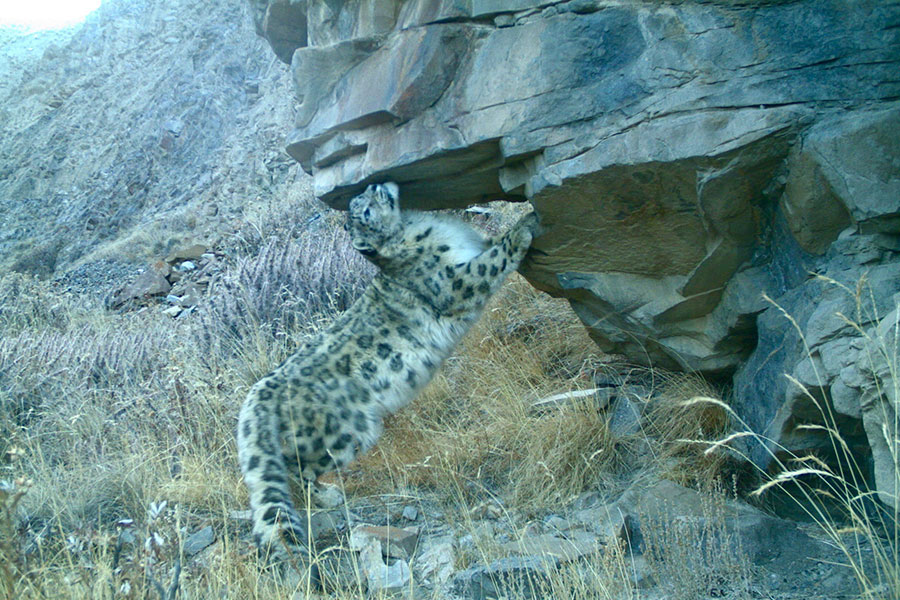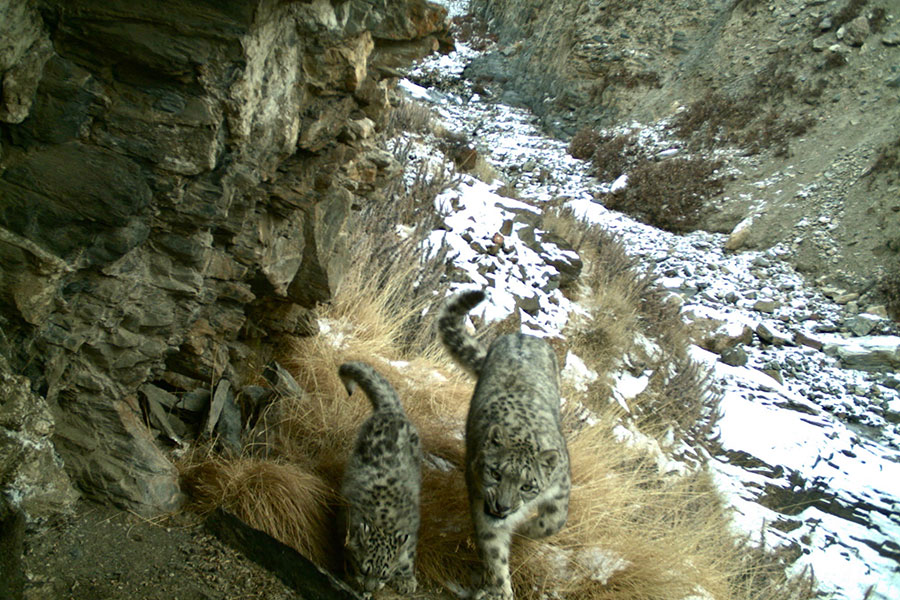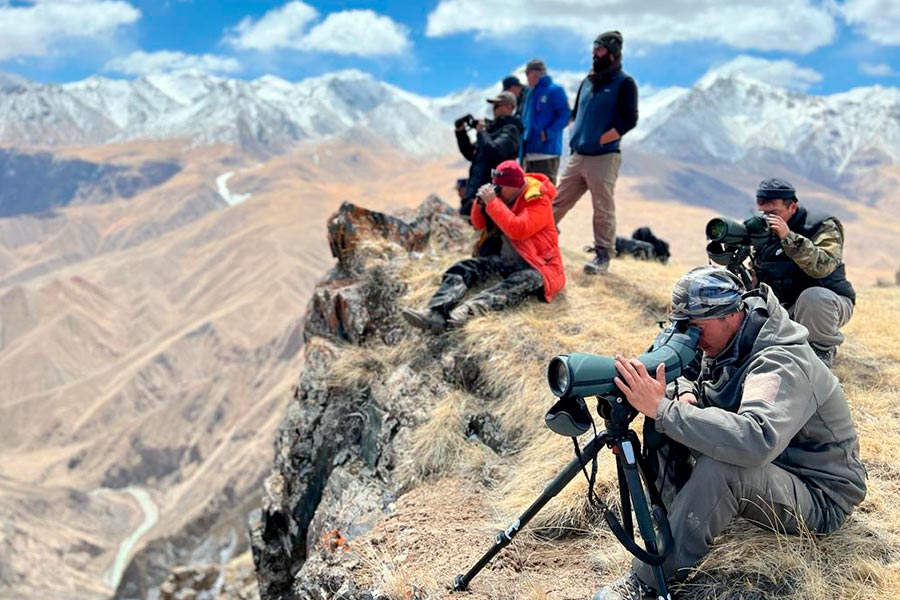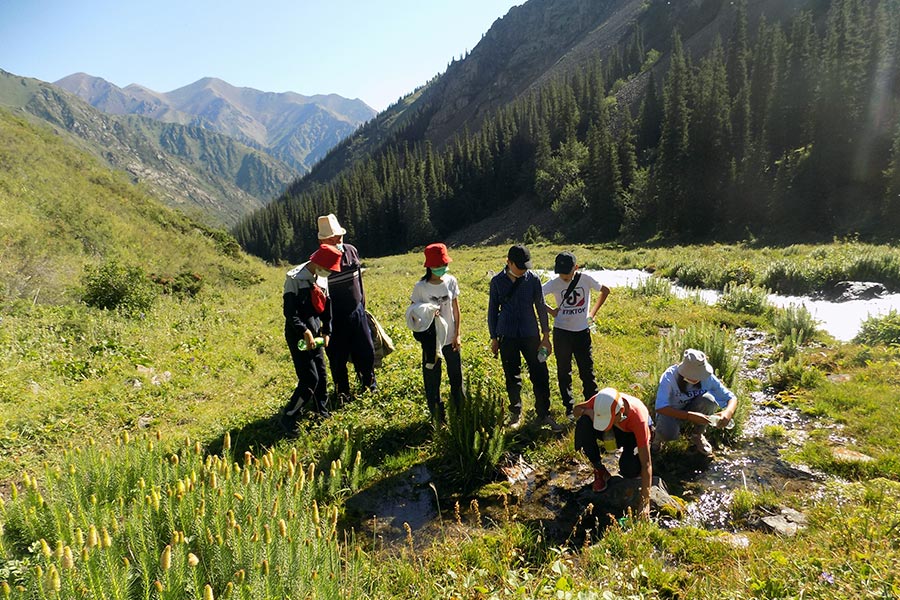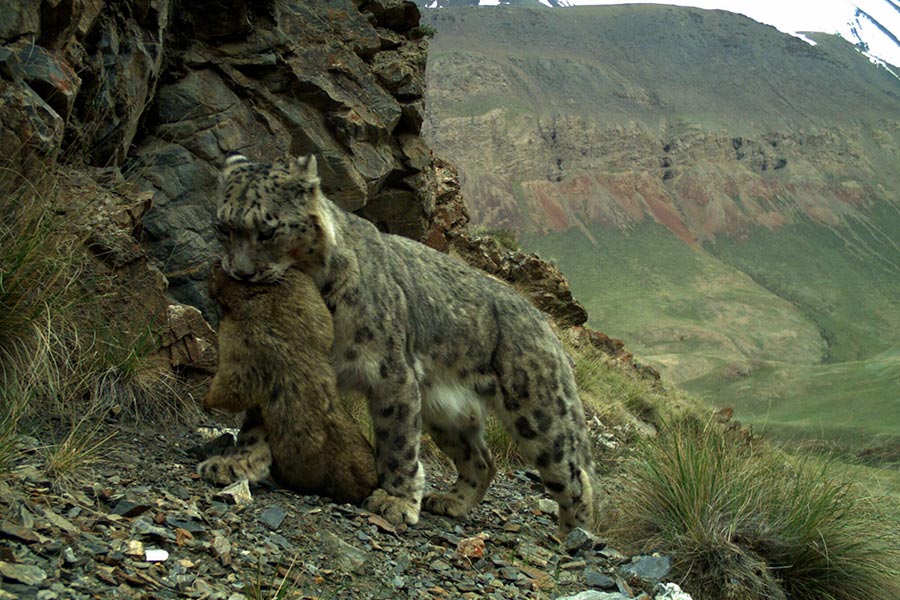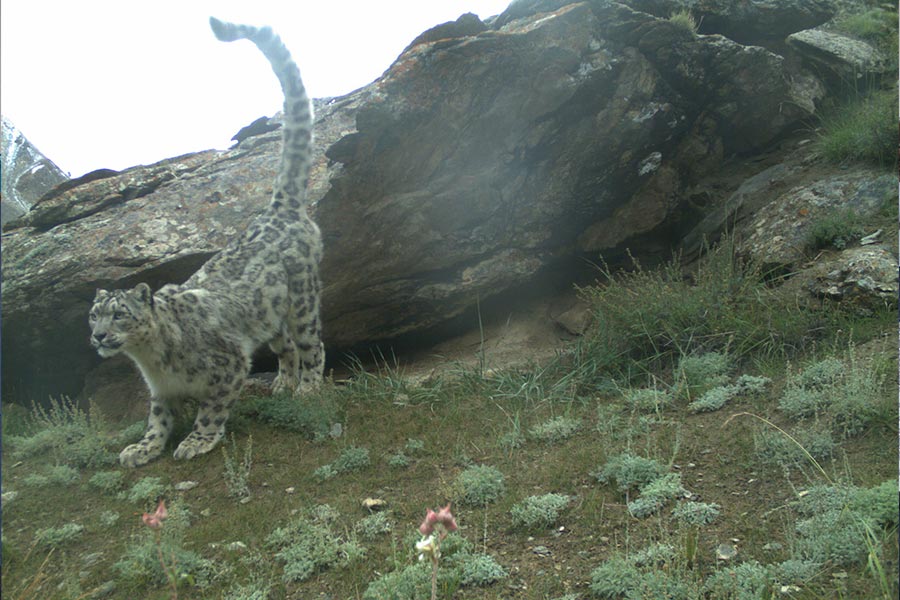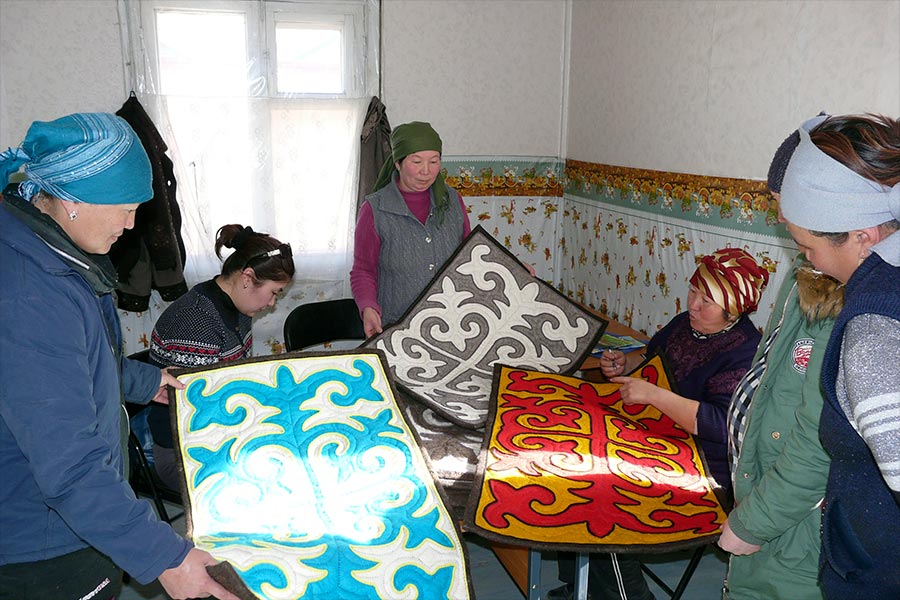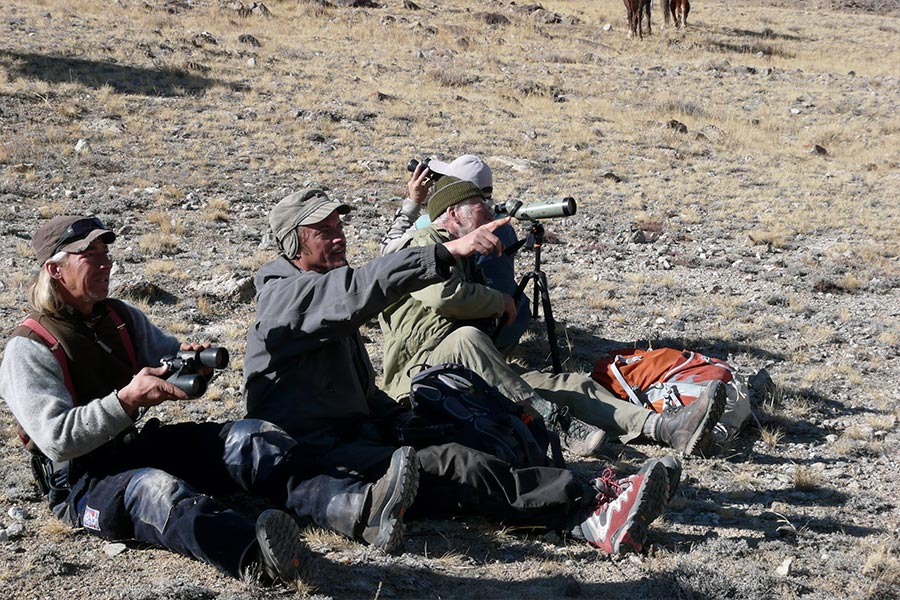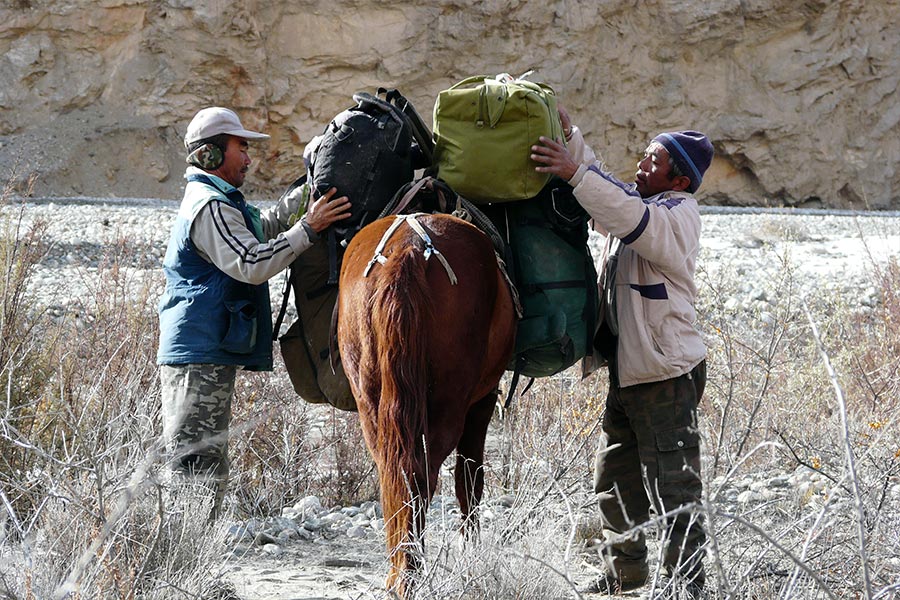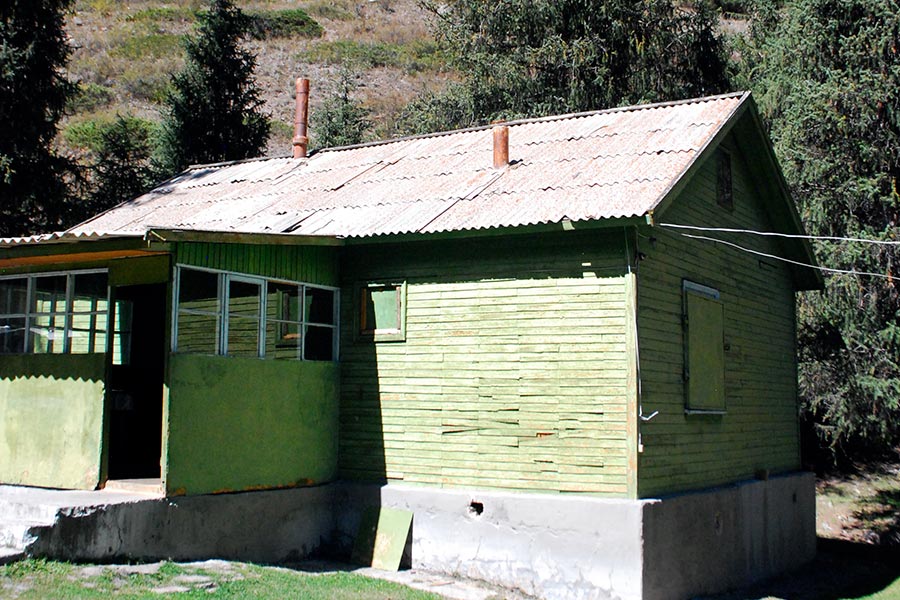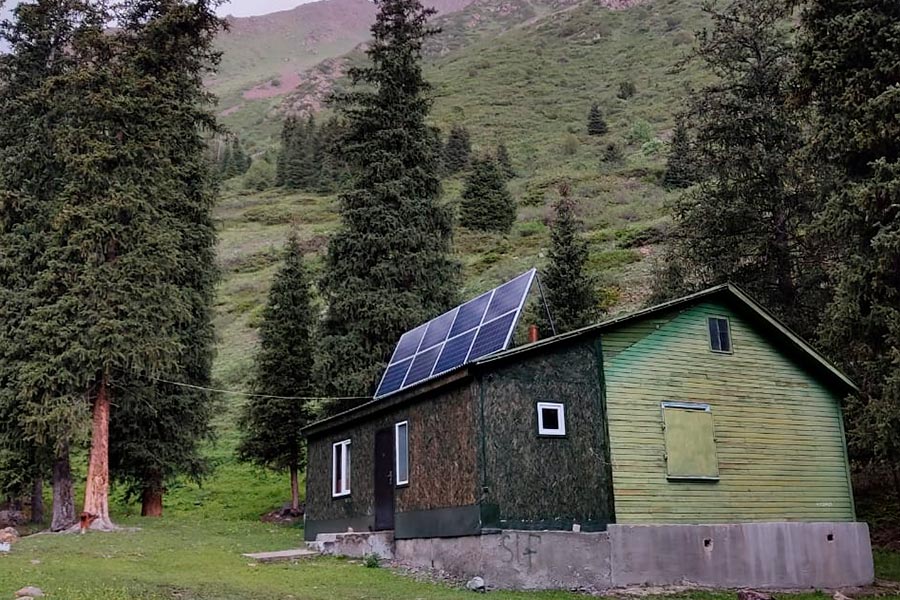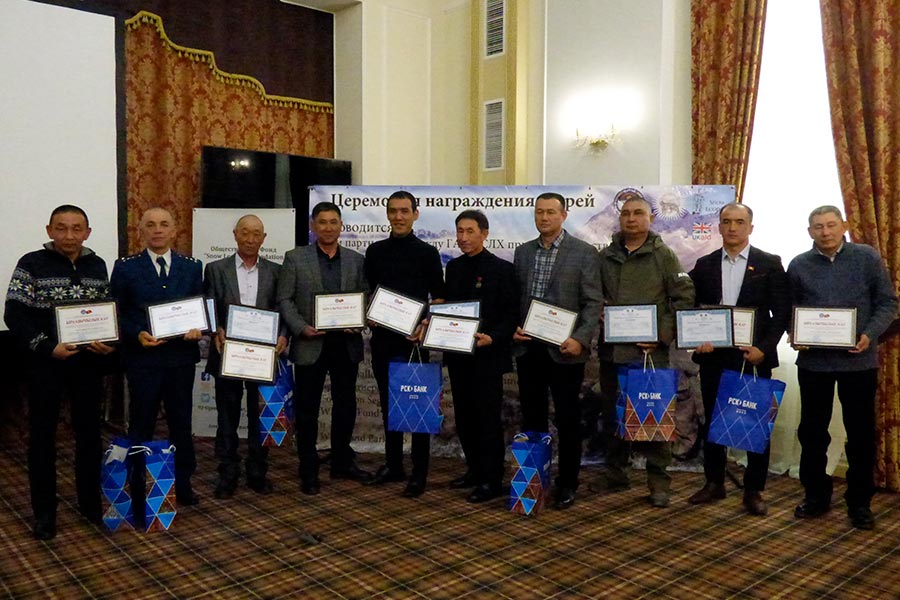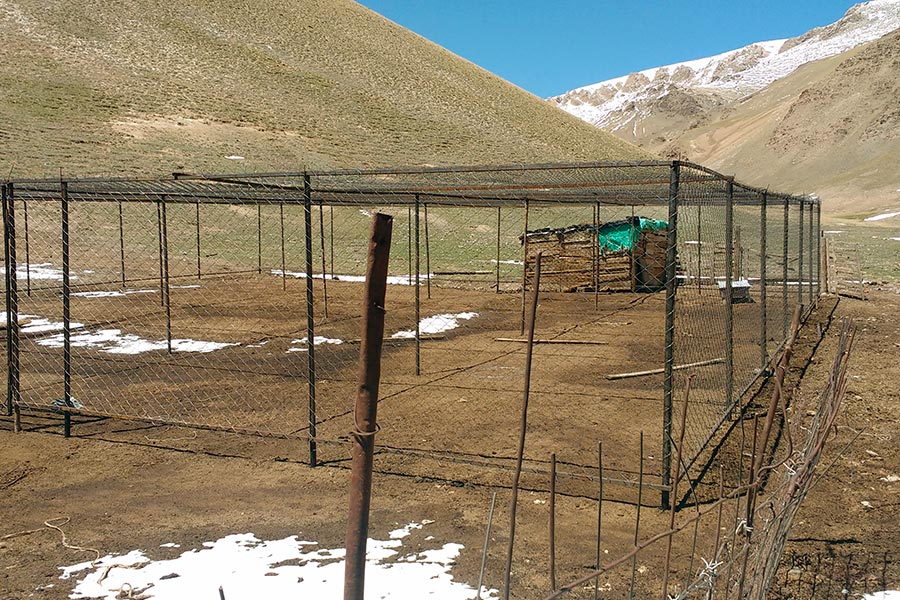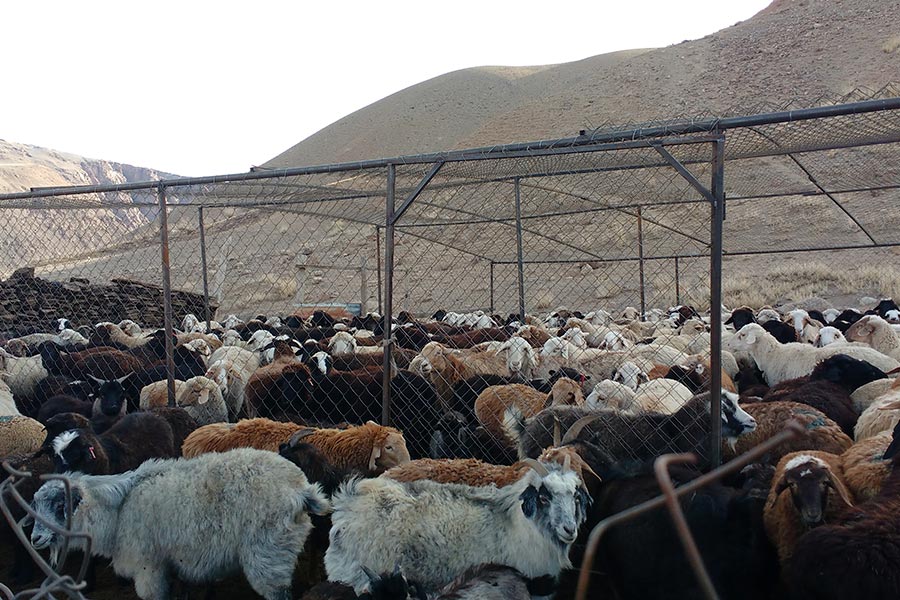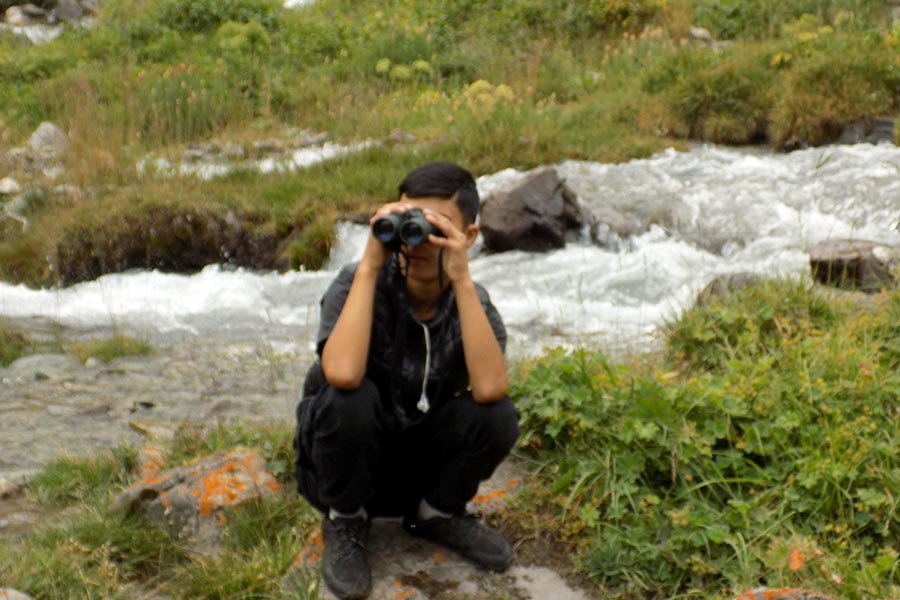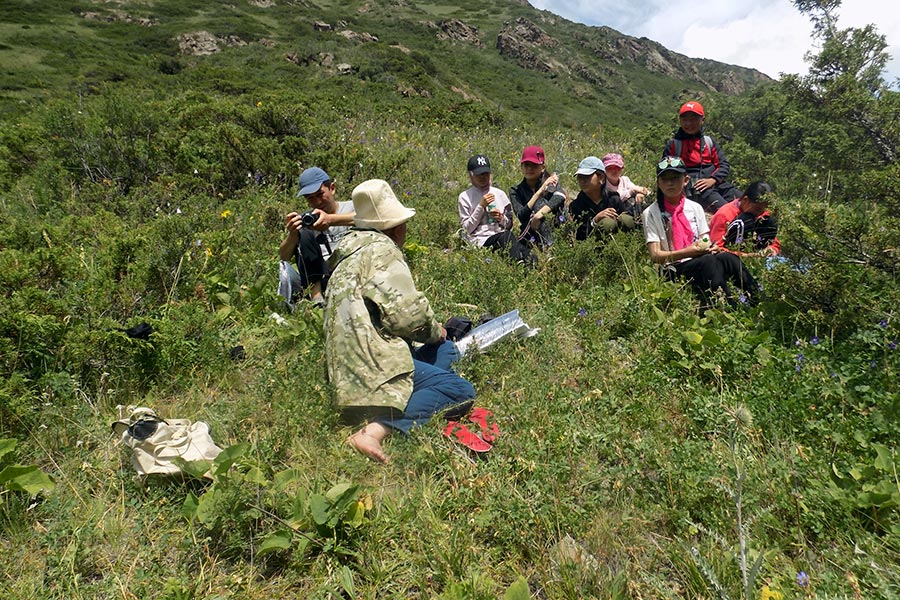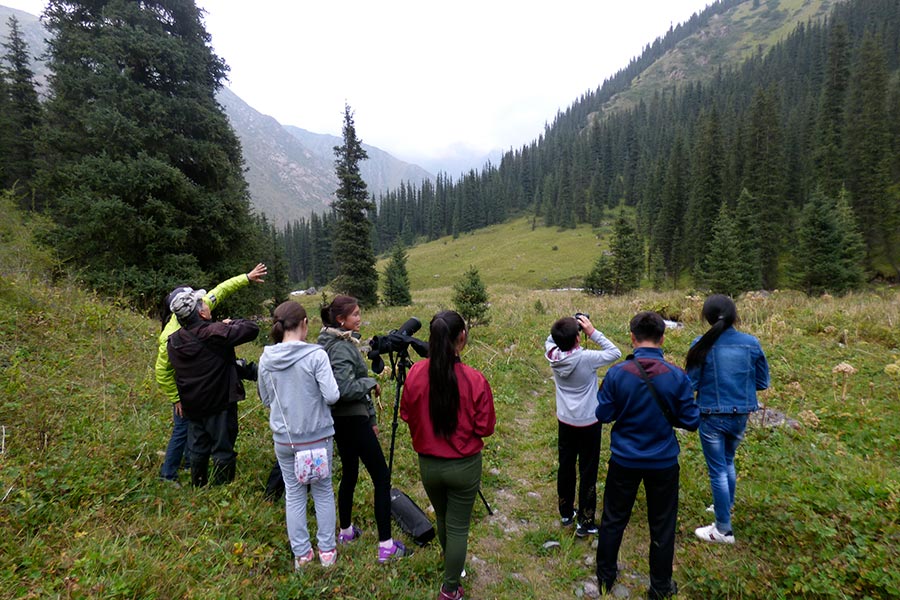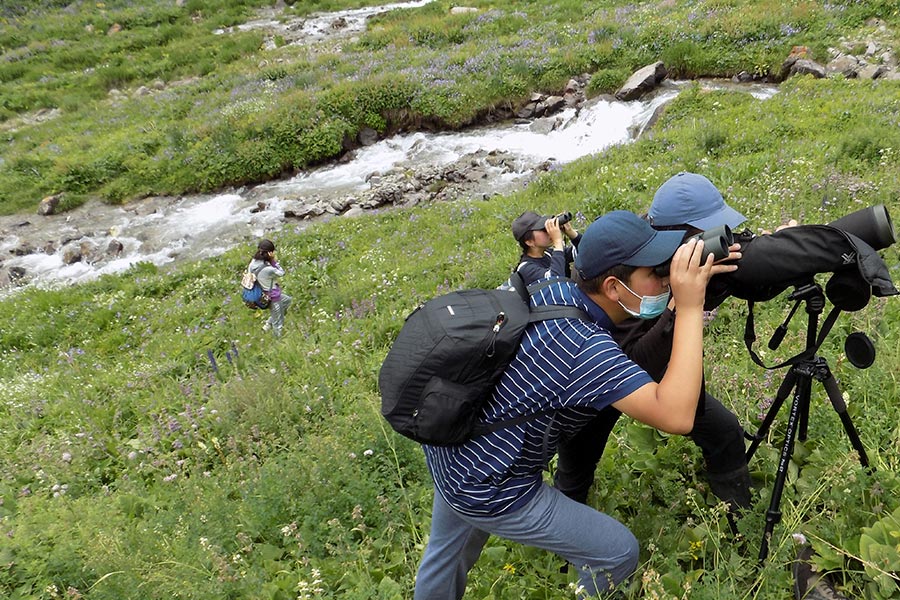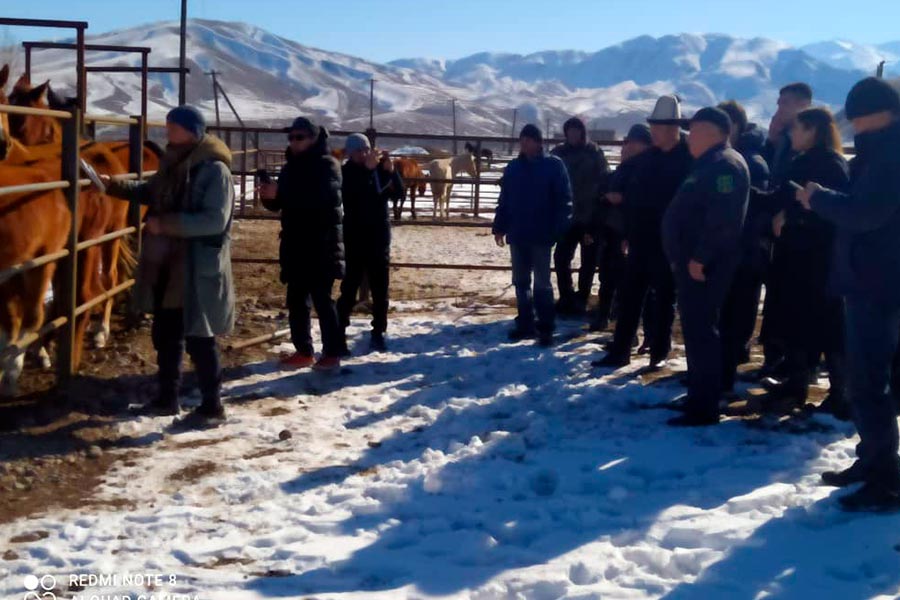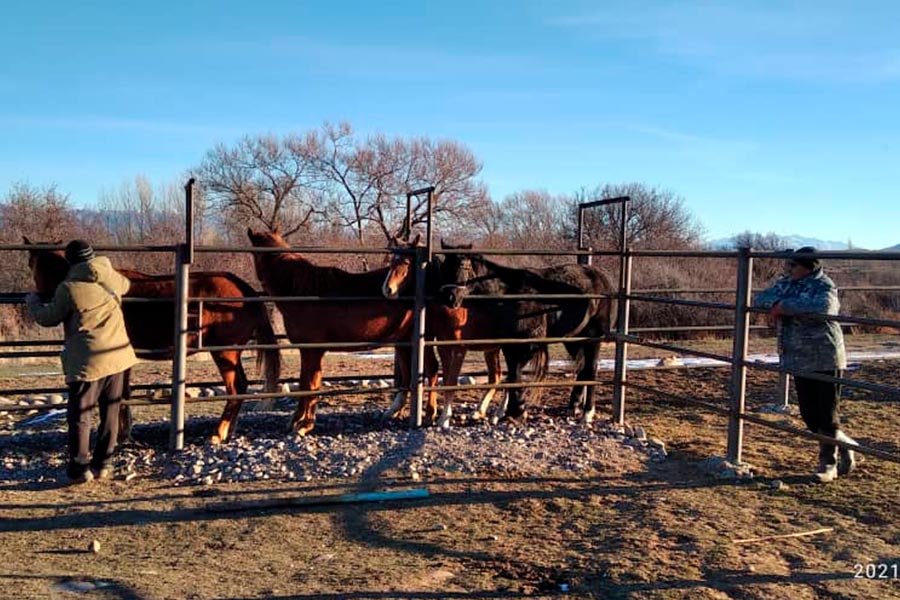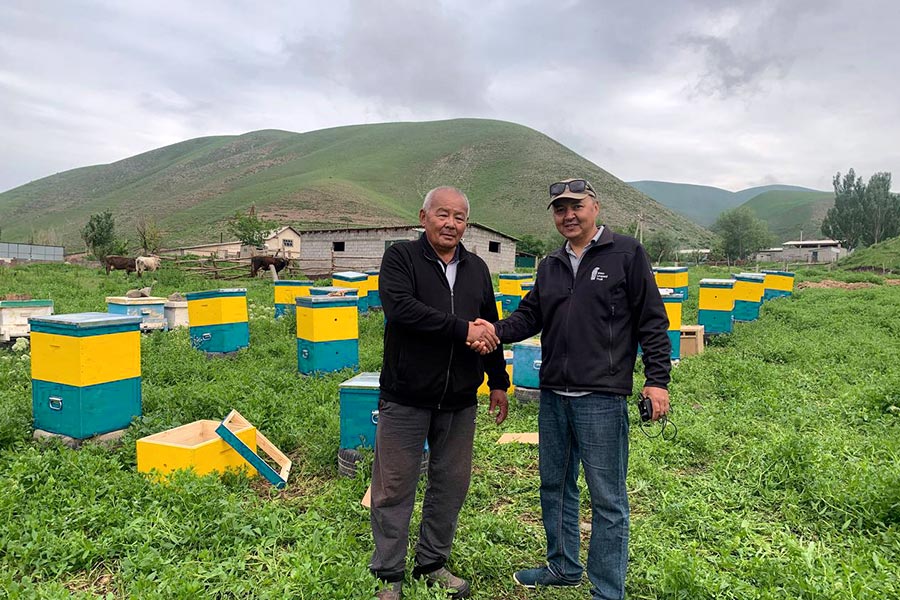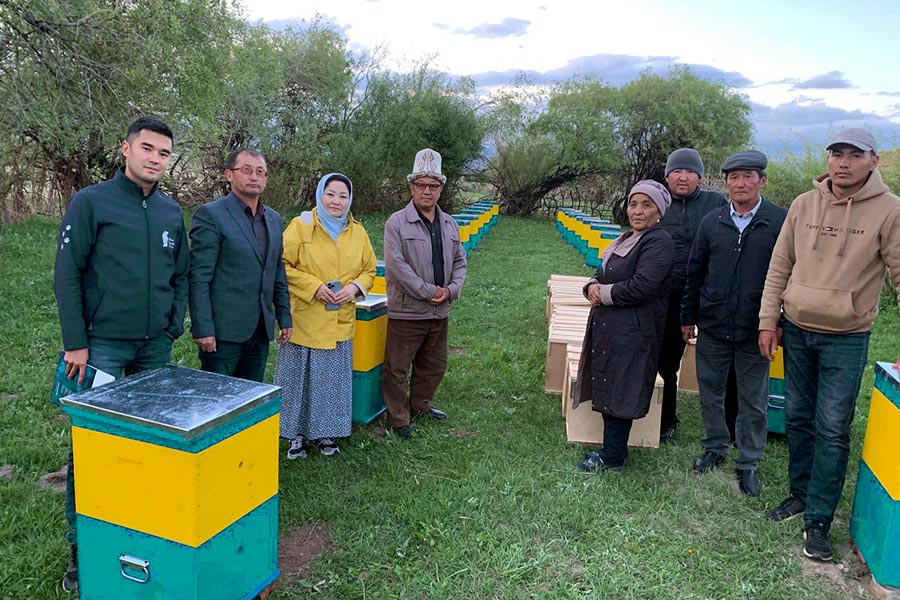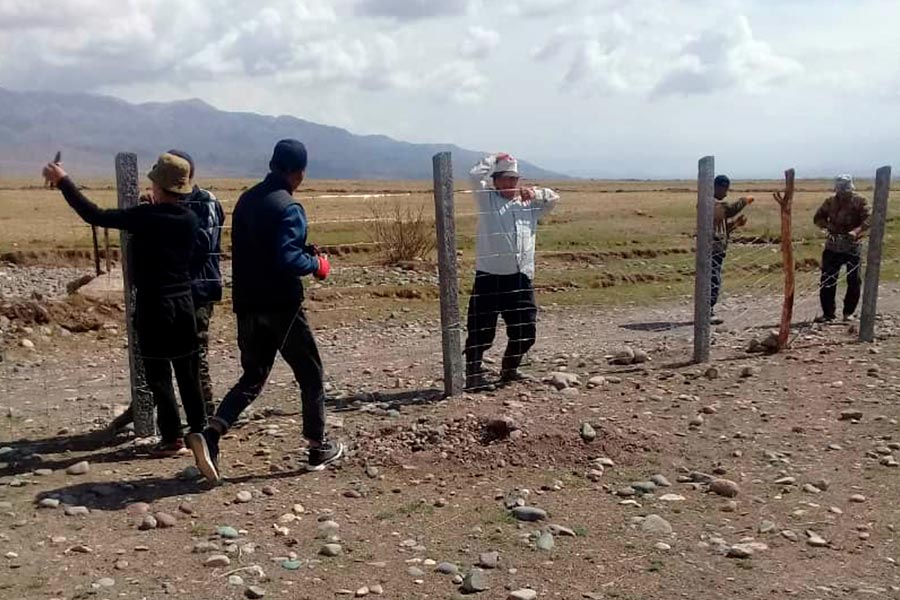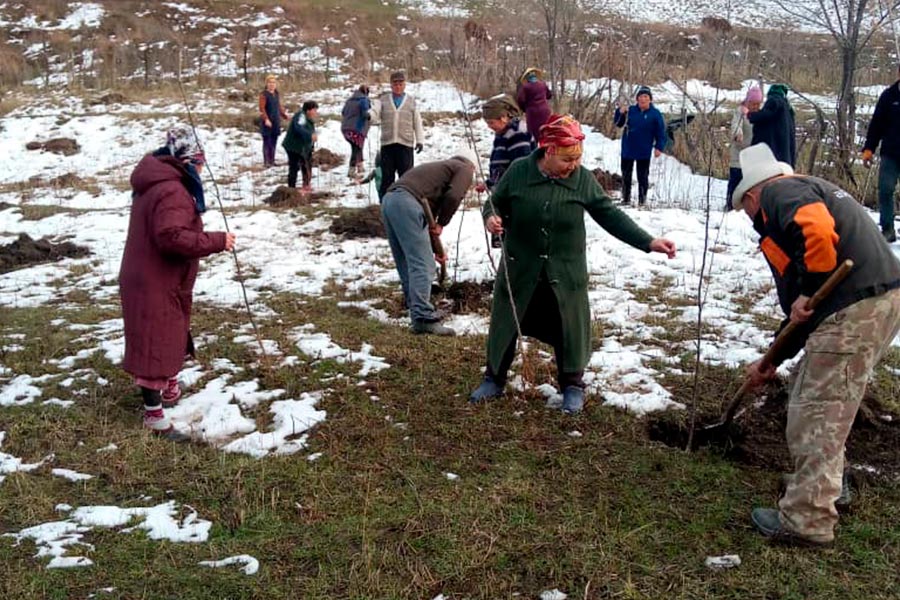Our preservation programs:
Ecotourism - In May 2021, our foundation received a grant from the Global Environment Facility Small Grants Program as part of the program “Supporting initiatives to respond to the consequences of COVID-19 by local communities protecting local territories.
The name of our project is “Snow leopard tours, the key to local nature conservation”.
As part of the project, on June 14, 2022, we organized a round table on the topic "Development of recommendations for environmentally responsible tourism that supports the needs of protected areas and local communities in the Kyrgyz Republic."
During the round table, the participants discussed the existing problems in the development of ecotourism within the protected areas, as well as the possibilities of involving local communities. We also reviewed the experience of ecotourism in protected areas in other countries.
In addition, during the round table, we discussed the content of the draft document “Procedure for visiting protected areas in the Kyrgyz Republic”.
As part of the GEF SGP project on snow leopard ecotourism, we conducted a series of trainings for rangers of the Sarychat-Eertash Reserve and residents of Ak-Shyirak village on tourism development. Training on snow leopards spotting in natural conditions, on the norms of behavior in protected areas, and on hospitality. Previously, rangers received first aid training, maintenance of spotting equipment, sanitary standards, as well as an intensive English course.
Ranger Reward Ceremony
On March 3, on the World Wildlife Day, we organize an annual Ranger Reward Ceremony.
Since the start of the program, 93 rangers and citizens have received an award for their active work in the fight against illegal hunting of wild mountain ungulates and snow leopards in Kyrgyzstan.
The Ranger Reward Ceremony is organized by the Snow Leopard Foundation in Kyrgyzstan with the support of the Snow Leopard Trust (SLT), IWT Challenge Fund of the UK Government, UKAID, Foundation Segre, Woodland Park Zoo and Whitley Fund for Nature in cooperation with the Ministry of Natural Resources, Ecology and Technical Inspection of the Kyrgyz Republic (MNRETI).
Since the beginning of the Ranger Reward Ceremony, we have given out rewards in the amount of more than 10 000 US dollars.
Beekeeping
In the framework of the Vanishing Treasures program UN Environment Programme Snow Leopard Trust, we started a beekeeping project for the snow leopard conservation in Shamshy AO, Chui district, Kum-Dobo AO and Kara-Suu AO, Kochkor district. Each AO received 50 hives and bee colonies, 1 honey extractor, as well as all necessary equipment such as suits, brushes, smoker and knives, etc. The project participants received training for beginner beekeepers on April 30 - May 1 in Kochkor. Experienced beekeeper leaders were selected in each village to guide beginner beekeepers.
As part of the project, we have signed conservation agreements with AOs and groups of beekeepers. According to the agreement, 20% of the profits from beekeeping will be directed to environmental protection activities to the local Environmental Fund. 30% should be allocated for the development of beekeeping. And 50% is distributed among responsible beekeepers who work directly in the apiary. The Environmental Fund will be managed by a committee that will consist of 9 people. This committee will include local self-government, deputies, pasture committee, representatives of the local school, as well as 2 employees of our foundation. 4 out of 9 committee members will be women.
The committee, with the participation of the SLFK, will annually identify possible conservation projects, for example: support for local rangers in organizing anti-poaching patrols, support for the pasture committee to improve livestock grazing practices, livestock disease management to prevent transmission to wild animals, creation of a landfill and other projects.
Also, the local population promises not to engage in illegal hunting of the snow leopard and its prey species (wild ungulates). The local community will inform the local rangers and SLFK about the cases of illegal hunting of the snow leopard and its prey species, as well as the places of illegal hunting, etc.
Did you know that bees pollinate up to 80-90% of plants? The remaining 10-20% is the work of butterflies, beetles, flies and other winged insects. One bee can visit up to 2000-3000 flowers per day. To collect 100 g of honey, bees need to visit a million flowers.
A well-developed colony can have up to 50,000 bees. Now imagine the potential of 155 hives?
Beekeeping can preserve plant diversity, improve pastures, diversify the income of the local population, which will reduce the risks of climate change, and also help to preserve the snow leopard and its landscape.
Planting
Together with local communities in the Chui and Naryn regions, we planted 10 hectares of orchards (3200 fruit trees and 2500 blackcurrants).
Climate change poses a threat to vulnerable mountain ecosystems. Local communities rely on these ecosystems for water and pastures. The main source of income for the local population is animal husbandry. However, due to the threats of climate change, it is necessary to diversify sources of income.
Due to lack of funds, local governments usually do not address environmental problems. In the future, our orchards will provide funds for solving environmental problems.
In the Chui region, we are working with Ak-Suu ayil okmotu or local self-government (Temen-Suu village), where we planted 1 ha of apple and 1 ha of plums. We are also working with Ibraimov ayil okmotu (Koshoy village), where we have planted 1 ha of apple and 1 ha of plums. In addition, we planted 1 ha of apple trees in Shamshy village, Chui region.
In the Naryn region, we work with the Kara-Suu ayil okmotu (village of Kyzyl-Dobo), where we planted 1 ha of apple and 1 ha of blackcurrant. We also planted 1 ha of apple and 1 ha of blackcurrant in Talaa-Bulak ayil okmotu (Komsomol village). In addition, we work with Kum-Dobo ayil okmotu, where we have planted 1 ha of apricot trees.
All local governments were provided with seedlings and materials for fencing gardens from livestock. Local communities came together, identified the land, prepared and fenced the land for planting seedlings. We have signed conservation agreements with every local community. According to conservation agreements, local communities promise not to participate in the poaching of the snow leopard and its prey species, not to provide assistance to poachers, to inform rangers and us about the facts of poaching in their landscapes. In addition, we have agreed that 50% of the income generated will be used for environmental protection activities such as combating poaching, improving pasture management, improving disease control or improving waste management, etc. The project will be overseen by the Ecological Committee, which will include representatives of the local community, local government, local parliament, pasture committee, local schools and our organization.
Eco-education
Children are our future! It is important for us to preserve nature for future generations. At the same time we try to instill in them interest and love for nature so they continue protecting it.
As part of our eco-education program, we work with over 400 children from 20 schools across Kyrgyzstan. We keep in touch with them via WhatsApp and often hold various competitions on topics related to the nature of Kyrgyzstan. Once every ten days, the winners receive certificates and prizes!
Children are always looking forward to our competitions and assignments!
Eco-camps
Ecocamps take place annually in the co-managed and protected area of Shamshy-Tuyuk.
For the eco-camp we chose students of regional schools who actively participated in our eco-educational program throughout the year.
During the eco camp, we study the snow leopard, its prey species and ecosystem, learn about other Red Book animals and various reserves. Every day, we watch wild ungulates, go to the mountains, make salt licks and set camera traps. Children are aware of the importance of conserving nature and wild animals. They will share this knowledge and memories with their relatives and classmates.
Thank you to @DavidShepherdWildlifeFoundation for their generous support of our educational programs in Kyrgyzstan!

